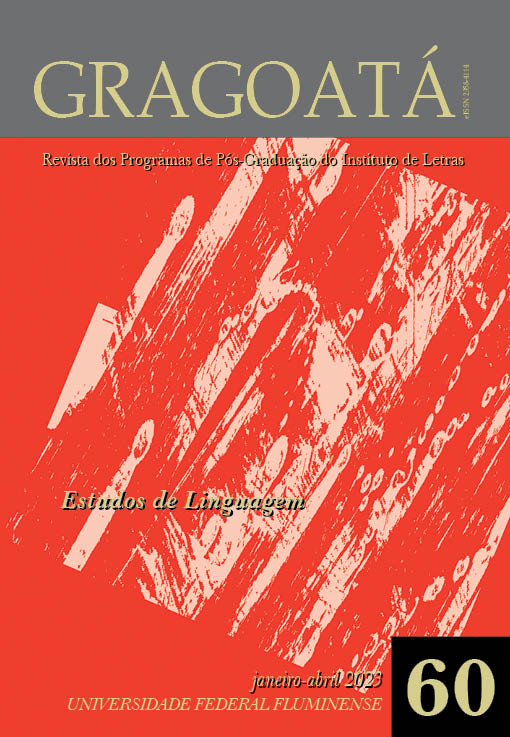“Null-subjectivities”, language and learning: We need to disturb meaningfulness
DOI:
https://doi.org/10.22409/gragoata.v28i60.53281Keywords:
pedagogia das misturas, subjetividades, ordens de indexicalidadeAbstract
In this study we explore the harmful impacts of understandings of languages as pure categories, especially for marginalized groups (BAUMAN; BRIGGS 2003; MAKONI; PENNYCOOK, 2007; MOITA LOPES, 2013). In dialogue with narratives produced by Filhos, a student of a pre-university course for young people and adults from popular classes, we reflect on the performative effects of modernist views of language, especially the English language. Our data was generated in an interview with Filhos, in which she reconstructs her academic trajectory of socialization (WORTHAM, 2015). Our analytical interest focuses on such a reconstruction, which we approach according to the orders of indexicality (BLOMMAERT, 2005; 2009; 2010) at play. The results point out that the modernist linguistic ideology revitalized by Filhos during the micro-situated event she participated in contributes to position her as a subjectivity that is void of legitimate knowledges and incapable of acting in the English-speaking world. We conclude by discussing the possible gains for historically excluded and stigmatized groups of what we term “pedagogy of mixtures.”
Downloads
Downloads
Published
Issue
Section
License
Copyright (c) 2023 Gragoatá

This work is licensed under a Creative Commons Attribution 4.0 International License.
Authors who publish in Gragoatá agree to the following terms:
The authors retain the rights and give the journal the right to the first publication, simultaneously subject to a Creative Commons license CC-BY-NC 4.0, which allows sharing by third parties with due mention to the author and the first publication by Gragoatá.
Authors may enter into additional and separate contractual arrangements for the non-exclusive distribution of the published version of the work (for example, posting it in an institutional repository or publishing it in a book), with recognition of its initial publication in Gragoatá.

Gragoatá is licensed under a Creative Commons - Attribution-NonCommercial 4.0 International.











